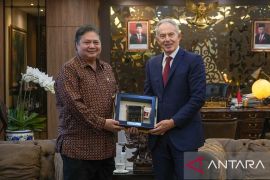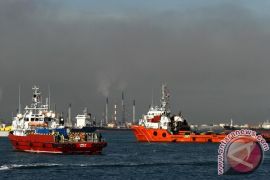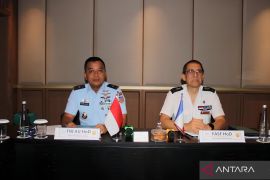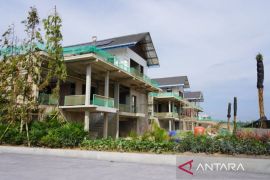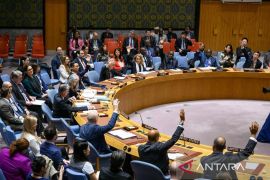"Based on our earlier coordination, Indonesia must reject Malaysia`s request (on the Kukup island and Piai bay), because the two locations appear to be under Indonesia`s sovereignty," Budi Purwanto said.Lombok, W Nusa Tenggara (ANTARA News) - Indonesia has rejected Malaysias proposal on the Particularly Sensitive Sea Area (PSSA) in Kukup Island and Piai Bay, as the two countries have yet to reach an agreement on settling their borders.
"The island and the bay are located in the border areas between Indonesia and Malaysia. The discussion between the two countries has not yet finished," Maritime Coordinating Ministrys Law Deputy Assistant Budi Purwanto said here, Tuesday.
During a Focus Group Discussion (FGD) on the Traffic Separation Scheme (TSS) at Lombok Strait, Purwanto explained that although the bay and the island reportedly lay in Johor, Malaysia, the waters nearby were in the border areas of Riau islands, Indonesia.
The two countries, according to Purwanto, were still discussing the coastline of the island and the bay.
Hence, before the International Maritime Organization (IMO) approved the request, the Indonesian government decided to convey its disagreement to Malaysia.
Before being approved by the IMO, Malaysia needs some support from the neighboring countries, including Indonesia.
"Based on our earlier coordination, Indonesia must reject Malaysias request (on the Kukup island and Piai bay), because the two locations appear to be under Indonesias sovereignty," Purwanto remarked.
Malaysia proposed the request on PSSA of the two locations during a meeting of the Marine Environment Protection Committee (MPEC) held by IMO earlier in London in July.
"A Particularly Sensitive Sea Area is an area that needs special protection through action by IMO, because of its ecological, socio-economic or scientific significance, and its vulnerability to damage by international maritime activities," the IMO stated in its official website.
Before being recognized as a special waters zone, the area should meet several characteristics, including ecological criteria, such as unique or rare ecosystem, diversity of the ecosystem, and vulnerability to degradation by natural events or human activities, the organization explained.
Meanwhile in terms of cultural and economic factors, the waters should serve as an area for recreation or tourism, as well as scientific and educational research or must be of historical value.
"When an area is approved as a particularly sensitive sea area, specific measures can be used to control the maritime activities in that area, such as routing measures, strict application of MARPOL discharge and equipment requirements for ships, such as oil tankers and installation of Vessel Traffic Services (VTS)," IMO noted, citing the regulation issued by the United Nations Convention on the Law of the Sea (UNCLOS). (*)
Editor: Heru Purwanto
Copyright © ANTARA 2017


